 Retrospectives of Israel’s stunning victory in the Six-Day War, when the Jewish state prevailed over assembled Arab armies, have dissected both the military campaign and its aftermath. What did it mean for each of the countries involved in the fighting? What roles did the American and Russian superpowers play? What strategic lessons can be drawn from battlefield experiences? And of course, the question foremost on pundits’ minds: whither the Israeli-Palestinian dispute?
Retrospectives of Israel’s stunning victory in the Six-Day War, when the Jewish state prevailed over assembled Arab armies, have dissected both the military campaign and its aftermath. What did it mean for each of the countries involved in the fighting? What roles did the American and Russian superpowers play? What strategic lessons can be drawn from battlefield experiences? And of course, the question foremost on pundits’ minds: whither the Israeli-Palestinian dispute?
On this last score, what often seems lost in the conversation is the more parochial factoid of time’s passage: Amid grand designs of resolving the conflict, the visceral effects of inertia on the psyche of the Holy Land’s inhabitants should never be underestimated. It holds the key to understanding why the regional equilibrium will likely hold fast.
A popular Hebrew idiom teaches that “there is nothing more permanent than the temporary.” Three generations of Israelis and Palestinians have been born since the Israeli Defense Forces captured the eastern part of Jerusalem and the West Bank territories from Jordan, the Gaza Strip and the Sinai desert from Egypt, and the Golan Heights from Syria.
The vast majority of locals in both Israel and the Palestinian Authority—where birth rates far outpace global averages—have known no other reality than the current one. Filtered through the prism of their lives, Israel has “always” maintained security control and, until the advent of the Palestinian Authority, administrative jurisdiction over the real estate formerly governed by Jordan. For better or worse, people have a natural tendency to cope with their predicament.
Israel’s late president Shimon Peres famously coined the phrase that “the Jews’ greatest contribution to history is dissatisfaction.” Indeed—without proposing to compare their conditions—Israelis and Palestinians are quick to disparage the current situation. But that didn’t stop Palestinian president Mahmoud Abbas from asserting a few years back that he would “wait for Hamas to accept international commitments” and “for Israel to freeze settlements”; in the meanwhile, he said, “in the West Bank we have a good reality… the people are living a normal life.” Israel, according to the U.N. Sustainable Development Solutions Network, has been the world’s 11th happiest country for four years running.
International impatience with the proverbial status quo notwithstanding, one cannot ignore that the parties themselves have crafted a tenuous modus vivendi from the present stalemate. Israelis are evidently content to accept their existing level of security and exercise of sovereignty. This explains their willingness to settle for repelling low-grade threats of terrorism and relative disinterest in jumpstarting a political process. The government in Jerusalem is more focused on the dangers of an Iranian nuclear weapon—where it has found common cause with the rulers of Sunni Arabia—than on coaxing Palestinian leaders back to the negotiating table. Similarly, the largely contained scope of Palestinian resistance to Israel speaks to their priorities: subordinating dreams of accumulating more power and territory to the solidification of P.A. rule in the areas under its direction. The persistent facilitation of incitement and violence against Israelis, ostensibly as an exhaust valve for Palestinian frustration, has incurred widespread opprobrium and provoked Israeli counter-measures, but not to the extent that Abbas has been compelled to desist.
In the midst of this stand-off, Israelis and Palestinians continue channeling their energies into making a living for their families. The economics of personal finance may be less grand than resplendent agreement-signings on the White House lawn, but they are the stuff of everyday life. And so Israel cultivates its reputation as the Start-Up Nation, while Palestinians hope that the new shopping mall, restaurants, and amphitheater in modern Rawabi become a magnet for tourism revenues. In the long run, the normalizing effect of prosperity—giving both Israelis and Palestinians something tangible to lose if hostilities should erupt—may be the best guarantor of peace.
Donald Trump may not be any more successful than his predecessors in his pursuit of the “ultimate deal.” Israelis and Palestinians might easily prefer to nurse their grievances and continue making the small compromises that help them get through each day. There’s a reason experienced hands have concluded that outside actors cannot want an accord more than the parties themselves; pushing them, while perhaps self-gratifying, risks being counter-productive. Besides, America’s primary motivation for solving the conflict—i.e. the destabilizing shock waves it purportedly sent through other anchors of Pax Americana—carries little persuasive weight in the current environment of raging internecine turmoil within the Arab world.
Modest expectations are in order. If Trump genuinely wants to be constructive, he can lend a hand in lowering the flames, encouraging investment, and promoting venues where Israelis and Palestinians can interact and—separately and together—realize the fullest potential of their talents. If he chooses to answer the call, he may yet be remembered for keeping the hopes of future reconciliation alive.
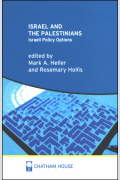
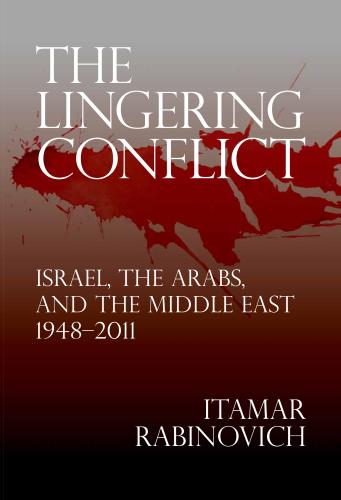

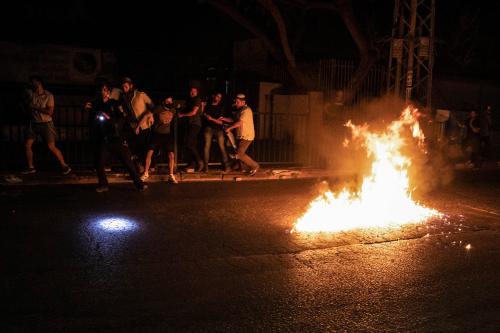
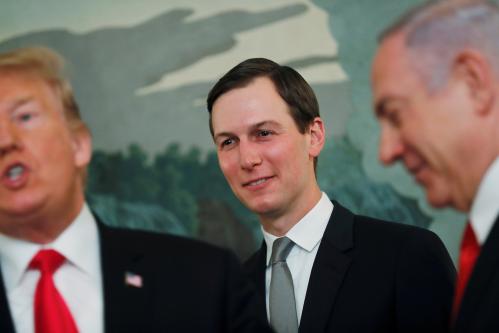
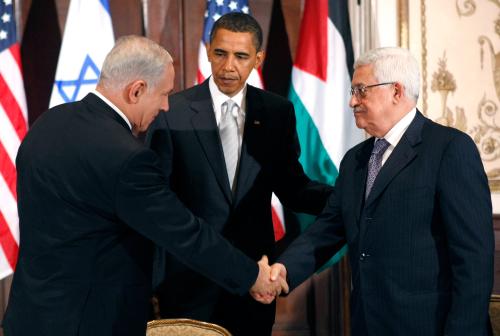

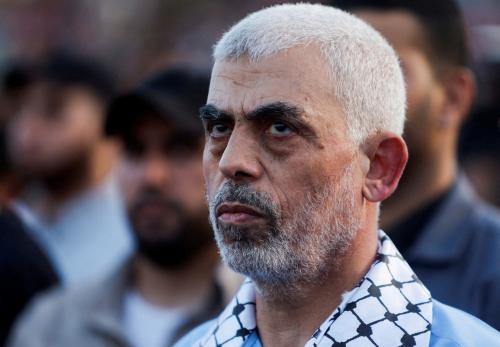
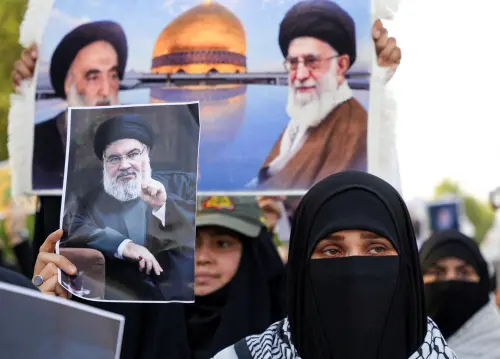
Commentary
50 years since the 1967 War: The understated power of inertia
June 13, 2017